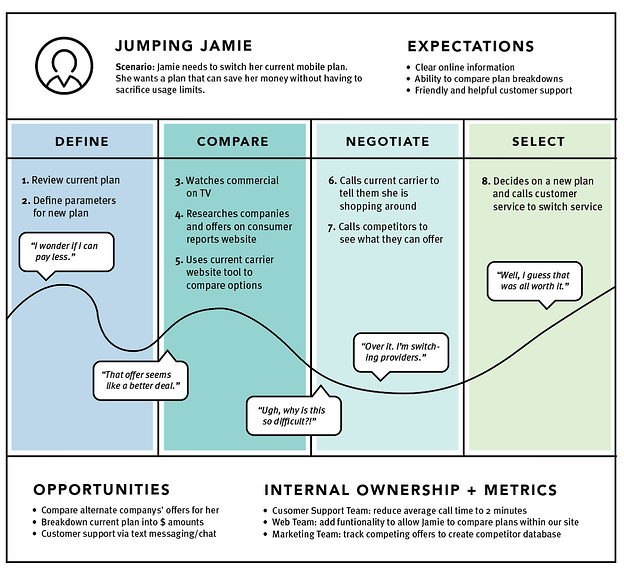The world of sales is a stressful one. In their haste to complete objectives, it’s not surprising that sales teams might sometimes appear disorganized. Good salespeople can think quickly and respond to changing circumstances. But is spending every waking moment putting out fires to ensure your sales staff succeeds in the long run? When it comes to sales performance, consistency in the sales process is what differentiates good salespeople from great salespeople.
This article delves into why it’s essential to maintain consistency in sales processes and how you can reap the benefits and provide consistent sales results.

What is consistency in sales processes?
Consistency is crucial. It doesn’t matter what kind of sales approach you take; you want to make sure everyone on the sales team is on the same page and taking the same actions to reach the same goals.
Figure out your end goal for the sales process and design your strategy accordingly. Focus on the needs of the buyer and the prospects for sales to develop a solution proposal. Moreover, follow all the steps from the sales playbook, and use your most robust sales materials at all times.
Achieving consistent sales success requires evaluating possibilities and devoting time and energy to the ones with the most promise.
Why is consistency in sales processes important for sales performance?
To begin, let’s define why it is crucial to maintain a steady level of sales success. Some of the many benefits of maintaining uniformity in your company’s sales procedures include the following:
- By sticking to a set pattern, you can save time and effort at every turn of the journey, and you’ll also be able to close more sales in less time as you standardize your procedures.
- If you stick to your sales process, you can enhance your chances of making a sale and, in turn, your revenue.
- If you have a system in place to maintain tabs on your sales pipeline, you’ll have a lot clearer picture of how much money your organization stands to generate each month.
- There’s a better chance to figure out what is or isn’t working when you have a well-defined procedure to follow, as you may improve conversions by updating and revising your strategy.
- A more organized sales procedure can boost customer satisfaction and, in turn, the value of each customer you bring on board.
Eight essential tips for maintaining consistency in sales processes
Here are the eight most effective ways to maintain consistency in sales processes.
1. Develop action plans
To help your representatives maintain consistency throughout time, assisting them in planning, preparing, and practicing consistent actions is essential. They need to know how to achieve their long-term objectives and key performance indicators and see if they’re on the right track.
An effective strategy will help you deal with this situation. It is based on the rep’s long-term objectives and quota projections and is a realistic yardstick for measuring daily performance. As a coach, you can use it to spot possibilities for instruction and guidance. A salesperson’s straying from the strategy indicates they could use extra advice and encouragement.
The specific form of this strategy will be unique to each representative. While some people find it helpful to schedule time aside, others find it more effective to write a to-do list each day and check items off as they’re completed.
Now that you have an action plan, you need to describe the customer’s journey. It’s essential to have a well-organized sales procedure.
2. Describe the customer’s journey
Understanding the buyer’s journey and how it relates to your sales process is integral to enhancing sales enablement and sustaining a laser focus on your customers. Once a salesperson has determined where a prospect stands in the buying process, they will be more equipped to ask pertinent questions. They will also offer appropriate solutions, and ultimately advance the sale.
An efficient sales team needs to follow a customer-centric sales procedure that ascertains where a customer is in the buying process.
Describe in detail the steps a potential client takes and your company’s responses to those steps to earn their business. Make sure that this information is easily accessible to your sales team, and they can refer to it anytime.
If you need help mapping a customer journey, you may want to check out this HubSpot blog post.

3. Limit distractions
One of the most effective ways to boost concentration and reliability is to eliminate any potential sources of distraction.
Most salespeople have to rely on various collaboration and communication tools to contact potential customers, which can be distracting. Top-performing salespeople are aware that maintaining consistency requires focusing on the task at hand and learning to reject unwanted stimuli when necessary.
One source of distraction could be the constant surfing between various apps. A study suggests that workers switch apps and windows about 1,200 times daily. This adds up to just under 4 hours each week reorienting themselves after toggling. To sum it up, toggling constitutes up to 9% of their time at work – just think about that!
An effective way to solve this is by integrating multiple tools into one workspace. nBold facilitates the connection between your everyday tools and your default collaboration platform – Microsoft Teams and brings structure and consistency in your collaboration processes. This allows for greater efficiency, better teamwork, and quicker execution.

4. Conduct pipeline reviews every week
Managers can use a weekly team meeting to ensure their salespeople’s efforts and pipeline priorities are on pace to achieve their goals. Weekly team meetings and one-on-ones can assist in checking in on each sales rep to ensure they’re still on track. You can add schedules to your workspaces and use Microsoft Teams to conduct weekly meetings online.
It’s crucial to monitor each representative’s key performance indicators, even if the transaction cycle is longer and check-ins are less regular. Your team will benefit significantly from these meetings, as you can better monitor progress toward intermediate goals and address any issues as soon as they arise.
5. Using technology to streamline processes
If you care about maintaining a consistent sales process, you shouldn’t overlook the role innovative technology play in assisting you. This is true even if you don’t consider yourself a technology-savvy salesperson.
There needs to be cooperation between your sales and staff members of other functions – marketing, product development, customer success, legal, etc. Yet, in reality, different teams often operate in silos, each one using their own tools, barely coordinating their activities with . That can hinder the development of the business and lower client satisfaction.
You can, however, bring all your teams together under the same roof and connect the processes spread over various tools with the people who use them. With nBold, you can create Collaboration Templates that allow you to have fully pre-built workspaces in Microsoft Teams with all the tools, content, and policies your teams need to collaborate successfully.
Everything from sales rules and pre-built tasks to record details is available with just a few clicks, making it easier than ever to seal a deal. With unified communication, your sales team can monitor a lead’s progress from the marketing department to the sales department, resulting in more targeted campaigns.

6. Lay down your criteria for maximum sales performance
Consistency is difficult to achieve when fifty salespeople follow their own rhythms. Therefore, it is important to take the time to define “good” and share that definition with your sales reps.
Standardized messaging guarantees that your team consistently relays the same information to potential customers. This is crucial when working with a bigger sales force and the possibility of numerous members of the sales staff talking to the same clients.
Establishing guidelines for how salespeople may discuss your offerings with customers would be best. It’s also a good idea to record successful and unsuccessful sales calls and make those available to reps so they may learn from both types of calls.
As the last point, it’s impossible to specify a single aesthetic standard. You are responsible for monitoring and checking that your sales reps follow these guidelines. To do so, you should track rep performance using your customer relationship management system, coaching intelligence technology, and other resources to make appropriate adjustments.
7. Organize priorities wisely
Everything demands your time but not every demand is equal. For example, a call with a prospect is nearly always more urgent than an internal discussion, and consistent salespeople organize their time according to these principles.
Without the ability to maintain focus, you risk getting tugged in a dozen directions during the day, all of which will negatively impact your sales performance. Make sure your salespeople know how to set priorities and provide their full attention to the most crucial tasks.
8. Create distinct positions within your sales team
The sales process can be divided into specialized positions (such as a lead generator, meetings coordinator, closer, and account manager) to produce more consistent outcomes. After all, assigning priorities becomes much simpler when each salesperson is in charge of just one aspect of the procedure.
Therefore, your representatives will become true experts in their fields. It will also aid in establishing concrete performance indicators and objectives for each position.
Conclusion
If you want consistent performance from your sales force, you need to start with a commitment to consistency from their end. This requires them to show up even when they don’t feel like it and put effort into helping you grow since they know the payoff will be worthwhile.
Your sales reps must maintain a high focus, awareness, and concentration throughout the day. They must consciously choose actions that will have the most impact and get the ball rolling on those tasks immediately.
